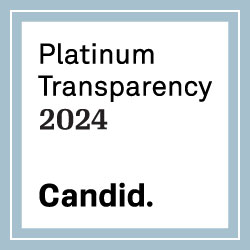FEBRUARY 13, 2018 BY
YVSC, with representatives from City Council and Steamboat Chamber Resort Association attended the Colorado Communities Symposium. We were impressed by the statewide work on climate mitigation and resilience and encouraged to work on climate action locally.
Article adapted from the Vail Daily
AURORA — Washington, D.C. is a dumpster fire, so if you want to save the planet, start with your community.
“The most exciting work in the country is going on in Colorado,” said Daniel Kreeger, executive director of the Association of Climate Change Officers based in South Florida.
Jon Stavney, executive director of the Northwest Colorado Council of Governments, said that collaboration is happening in the mountains where, for now, “anxiety about a scarcity of snow and water may supersede anxiety about the election year that has only just begun.”
Aspen Mayor Steve Skadron recently called a meeting of like minds from across Colorado, where he asked them a remarkably simple question: Would leaders pledge to act on climate change, do it publicly, and join a Compact of Colorado Communities?
Last week, eight months after Skadron made that first call, more than 400 local leaders from across the state made the trek to the Front Range to compare ideas.
Places including Vail, Aspen and Durango have been working at this for years, often tip-toeing around politics and language made toxic recently.
HOW YOU ASK
Sometimes getting the right answer is in how you ask the question.
Former Iowa Governor Tom Vilsack said that while running the Department of Agriculture the agency surveyed farmers. When asked, “would you like to have more information on climate change,” 80 percent said “no.” But later in the same survey, when asked if they “would like more information on how to deal with climate variability,” 80 percent said “yes.”
Kristen Bertuglia is Vail’s environmental sustainability manager, and has 10 years of experience working on climate-related issues. One of Vail’s goals in the town’s sustainability plan is to promote public stewardship.
Bertuglia told the group that the phrase “climate change” did not resonate in Vail. However, “Love Vail” did.
Several Vail leaders visited sister city Nagano, Japan in January. Yes, the snow was great, but there were lessons to be learned, too.
“We have a lot to learn from the best in the world, and the world leaders in sustainability are not in the United States,” Bertuglia said.
Partisan rhetoric about climate change may be divisive, but the work on the ground does not reveal such boundaries.
“Addressing climate change at a sub-national level is where policy has to go,” said former Gov. Bill Ritter, who now leads the Center for the New Age Economy at Colorado State University.
For example, both Vilsack and Colorado Gov. John Hickenlooper pointed out that eight western governors — six Republicans among them — unanimously back an initiative to build an electric vehicle network across the West.
Results can take time, though. Colorado Lieutenant Governor Donna Lynne said, “I remember when it was OK to litter.”
Hickenlooper argued for being both “relentlessly pro-environment and relentlessly pro-business” at last week’s meeting. He said the rhetorical contradiction between these was “false,” and that the environmental legislation of the 1970s were bipartisan bills under the leadership of a Republican president.
“Clean water and clean air are a spiritual matter,” Hickenlooper said, adding that people from around the world come to our wilderness to be rejuvenated.
MONEY MATTERS
Xcel Energy President David Eves said his most pleasant surprise (about clean energy) has been the economics. As use of renewable energy is up, Xcel customer bills have dropped 9 percent since 2013.
In fact, Xcel initially looked at adding a 2 percent surcharge for renewables, but found it was not necessary, Eves said. He added that by 2020, 65 percent of Xcel’s portfolio will be clean energy.
“I don’t think certain projects would be moving forward without the support of so many communities that have engaged,” Eves said.
Aspen’s Mayor Skadron was invited to the Paris Accords by former New York City Mayor Michael Bloomberg, for an event for climate action by local leaders.
“Yes, it is easy to roll your eyes and say, ‘Aspen, they can afford anything,’” Skadron said.
Aspen, though well known, is still a town of 1,600 residents, where ideas are larger than place, Skadron said.
“I left understanding that urgency and collaboration happen locally, and I envisioned taking the international compact of mayors on climate and scaling it for Colorado so local actions in Colorado can be an example,” Skadron said.
Staff Writer Randy Wyrick can be reached at 970-748-2935 or rwyrick@vaildaily.com.
Jon Stavney, executive director of the Northwest Colorado Council of Governments, gathered the information for this story.






